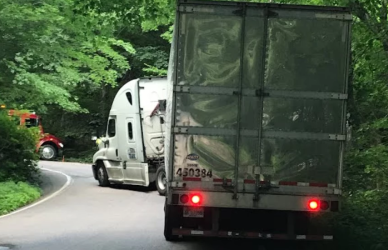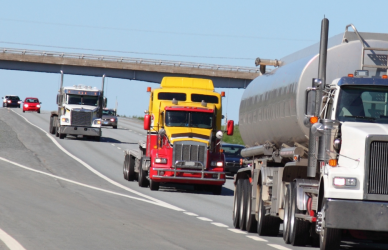Pete Buttigieg, the U.S. Transportation Secretary, in collaboration with FMCSA, condemned the imposition of “junk fees” by predatory towing companies and unscrupulous parking lot operators. This condemnation was backed by the claim that these entities “use their possession of the vehicle as leverage to prey upon truckers who are in no position to push back.”
Recent years have witnessed a documented surge in distressing tales of predatory towing, ranging from exorbitant charges for basic boot removal to staggering amounts like $140,000 for a single tractor-trailer accident. Investigations have brought to light the training provided to towing professionals on inflating invoices, often billing excessively for overhead items such as headsets.
Both Buttigieg and FMCSA “expressed strong support for trucker protections against predatory towing fees in a comment filed on the Federal Trade Commission’s (FTC) proposed rule banning junk fees.”
This move aligns with a broader effort against “junk fees.” The FTC hopes that a rule would stop and prohibit “businesses from charging hidden and bogus junk fees by requiring them to include all mandatory fees when quoting a price.”
“FMCSA believes that predatory towing fee practices fall within the purview of FTC’s proposed rule, which would greatly benefit truckers if finalized,” FMCSA said.
“When a truck driver’s vehicle is towed, they can’t earn a living until they get it back — leaving them vulnerable to predatory junk fees from towing companies,” Buttigieg said. “We support FTC’s efforts to stand up for truckers by acting to ban junk fees and prevent predatory towing fees that can cause significant financial harm.”
FMCSA Acting Deputy Administrator Sue Lawless emphasized the extensive repercussions.
“Predatory towing negatively impacts consumers, including commercial motor vehicle drivers and trucking companies,” Lawless said. “It is detrimental to the overall health of the trucking industry, and it’s time to end excessive rates, surcharges and other unfair fees associated with predatory towing.
Attorneys handling tow disputes have flagged this issue as existential for truck owners, with carriers involved in predatory towing situations facing grim legal prospects.
Various states have taken up the fight against predatory towing, with Maryland enacting robust laws against non-consensual towing ordered by the police. In Florida, a new bill proposes setting maximum towing rates and storage fees, mandating tow companies to accept diverse document types and payments, along with additional regulations. Similarly, a Missouri bill aims to enforce itemized receipts for towing, heightened documentation requirements for storing towed vehicles, and a streamlined process for cargo owners to retrieve their goods.
The Owner-Operator’s Independent Drivers Association has actively supported both bills, advocating for federal protections.
“There are a number of states interested in making changes regarding nonconsensual and predatory towing including Missouri, Maryland and Tennessee and others,” an OOIDA spokesperson said.
The federal initiative, part of the broader Biden Administration push against “junk fees,” targets not only non-consensual tows but also addresses issues related to parking lot operators.
The Department of Transportation (DOT) and FMCSA summarized the problem, emphasizing the vulnerability of truckers once their vehicles are towed. Predatory towing companies leverage their vehicle possession to exploit truckers who find themselves in a disadvantaged position.
FMCSA specifically called for the following actions:
- Ban junk fees for unnecessary goods or services: Prohibiting companies from charging fees for ancillary goods or services with no value or that reasonably should be included in the upfront price.
- Prohibit or restrict excessive junk fee practices: Encouraging restrictions on practices such as charging an excessive number of fees, excessive amounts for a fee, or variable fees for fixed costs.
- Treat each illegal junk fee as a violation: Proposing that each illegal junk fee be considered a separate violation, expressly prohibiting companies from charging undisclosed mandatory fees.
While the FTC’s junk fees proposal is still in progress, there are steps owner-operators can take to protect themselves from and contest unfair billing and towing practices.
Source: Commercial Carrier Journal











